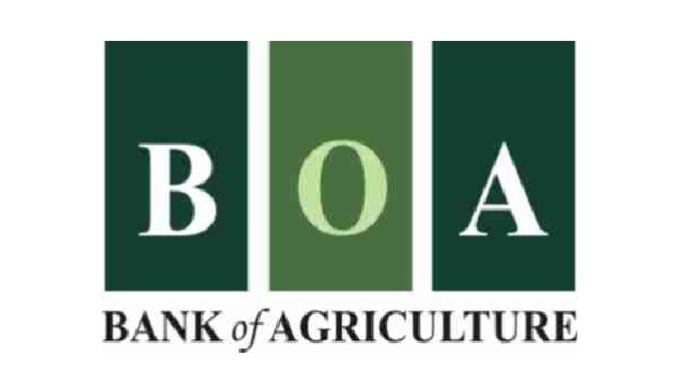
With the objective of substantially bolstering Nigeria’s endeavors towards food security, the Federal Government (FG) has declared its intentions to thoroughly rejuvenate the Bank of Agriculture (BOA). Concerns about national food self-sufficiency and the need to empower players along the agricultural value chain have led to this strategic choice. The FG is dedicated to changing the BOA into a more effective and responsive financial institution because it acknowledges the BOA’s critical role in accomplishing these objectives.
Principal Aspects of the Realignment
Enhanced financial accessibility for agricultural stakeholders: The redesigned BOA is anticipated to optimize loan application procedures and distribute funds in a more effective manner. Farmers, agro-allied companies, and other stakeholders along the entire agricultural value chain—such as input suppliers, extension service providers, logistics and transportation firms, operators of storage facilities, and retailers—will all gain from this. The BOA can contribute to strengthening the entire agricultural ecosystem and promoting increased productivity and efficiency by making credit more easily accessible to these actors.
Capital allocation increased: In 2022, the FG authorized N50 billion more in shares for BOA, a significant increase from N50 billion. The bank will be able to support a greater range of agricultural projects, including land development and irrigation programs, storage and processing facilities, and research and development in agricultural technologies, thanks to this significant financial infusion. A wider range of actors in the agricultural value chain, from pre-production to post-harvest, will benefit from this expanded financing. Smallholder farmers, for example, can obtain loans to buy fertilizers and necessary equipment, while larger agribusinesses can obtain funding to build new silos or invest in creative irrigation systems. Furthermore, the BOA can be extremely helpful in funding studies into novel and enhanced crop varieties, sustainable farming methods,
and better techniques for storing and preserving food.
Put an emphasis on effective credit utilization: The goal of the repositioning is to guarantee that borrowed money is utilized for agricultural purposes. Stricter mechanisms for monitoring and evaluation will probably be required for this. The BOA could employ a multifaceted strategy to do this. In order to make sure borrowers have the ability and experience to handle the requested funds effectively, loan applications could first be carefully reviewed. This could entail assessing their past agricultural performance, financial literacy, and business plans. Secondly, the BOA could set up a system to keep an eye on how loans are used during the course of a project. To monitor developments and spot any possible problems, this may entail partnerships with reputable NGOs or field visits by agricultural extension agents. Lastly, After projects are finished, thorough impact assessments should be carried out to determine how much they contributed to higher productivity and greater food security overall. The BOA can make sure that loans are used wisely and produce the desired benefits by putting these thorough procedures in place.
Enhanced professionalism: Experienced agricultural finance professionals with a thorough understanding of Nigeria’s agricultural sector and the particular difficulties faced by farmers and agribusinesses are anticipated to be hired by the FG. These experts ought to have a proven track record of creating and executing loan programs that are specifically designed to meet the requirements of agricultural borrowers. In addition, proficiency in financial analysis and risk management will be essential to guaranteeing the longevity of the bank’s lending activities. Additionally, candidates who are passionate about promoting agricultural growth in Nigeria and have a commitment to rural development should be given preference during the recruitment process.
Anticipated Results

It is expected that the BOA’s repositioning will have the following beneficial effects:
Enhanced agricultural productivity can be achieved by making credit facilities more accessible to farmers. This will enable them to invest in mechanization, better seeds, and fertilizers, which will raise yields, improve crop quality, lower post-harvest losses, and create a more diverse base of agricultural production. In addition to improving food security, this will produce an excess that can be exported, which could raise foreign exchange earnings and establish Nigeria as a significant player in the world agricultural market.
Increased agribusiness activity: A stronger BOA can serve as a spark for the expansion of agribusiness endeavors, resulting in the creation of jobs and the promotion of economic diversification in rural areas. Through financing agro-processing, marketing, and logistics, among other things, the BOA can enable business owners to start and grow ventures that enhance the value of agricultural products. This could have a knock-on effect on the whole economy, boosting the creation of jobs in rural areas, lowering post-harvest losses, and expanding consumer access to packaged and processed food items. A strong agribusiness industry can also draw funding from other industries, which promotes the economic development of rural areas even more.
Decreased reliance on imported food: Nigeria’s food security may be strengthened by reduced reliance on imported food as a result of increased domestic food production brought about by the FG’s BOA reforms.
Gazing Forward
The BOA’s repositioning will only be successful if it is implemented well and closely observed. A close watch will be maintained on the bank’s advancement and its contribution to the goals of national food security by stakeholders in the agricultural sector.

Be the first to comment